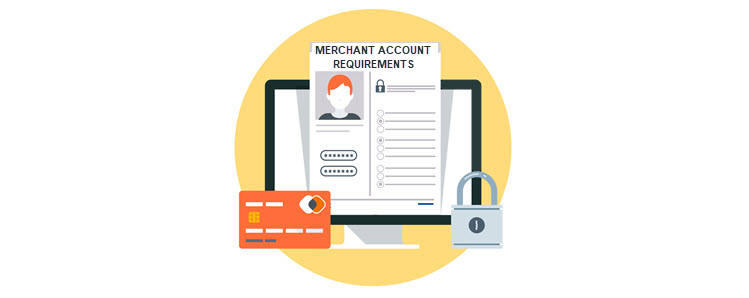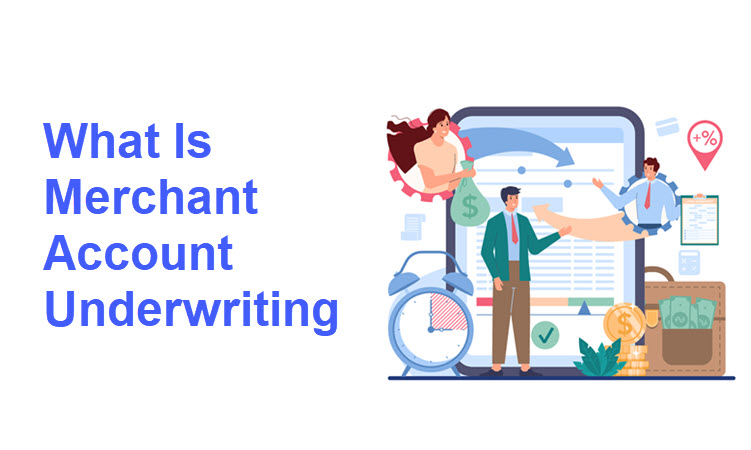Every merchant that wants to receive online payments needs to have a merchant account. To open a merchant account, merchants work with payment processors or merchant acquirers.
However, getting a merchant account is not easy for every business. Before opening a merchant account, payment processors or merchant acquirers thoroughly analyze a business to ensure that it successfully handles its financial operations. This procedure is called merchant account underwriting.
This article explains what merchant account underwriting is and how the procedure works.
What Is Merchant Account Underwriting?

Merchant account underwriting is a risk-assessment procedure during which a payment processor or merchant acquirer analyses whether the merchant can carry out their business activities efficiently and securely.
The payment processor or merchant acquirer conducting the merchant account underwriting process is also called an underwriter.
The underwriting procedure helps the underwriter establish whether the merchant is financially responsible and estimate how liable they are to operate in line with the law and financial regulations.
At the end of the underwriting process, the merchant may be approved to open a low-risk or high-risk merchant account. If the underwriter decides that the merchant is too risky, they can reject the merchant account application altogether.
What Does the Merchant Underwriting Process Look Like?
For many businesses, the merchant underwriting process doesn’t take long. The underwriter assesses them quickly and their merchant account is opened within several hours.
However, this process lasts longer for businesses requiring high-risk payment processing. If the underwriting institution labels a merchant as high-risk, these businesses must open a high-risk merchant account.
Once the underwriter goes over the merchant’s financial information and analyzes their track record, they can predict the likelihood of customer chargeback and the merchant’s exposure to potential payment fraud.
During the procedure, the underwriter needs to establish the following:
1. Business Type and Background
The underwriter establishes what type of business the merchant wants to run. Some industries and niches within them are inherently considered riskier than others. Hence, underwriters scrutinize some business types more closely.
Businesses considered high-risk must show that they are financially capable of carrying out business operations in their industry. However, the merchant acquirer or payment processor may refuse to open a merchant account if the underwriting procedure shows that the merchant is too risky to work with.
These are some of the industries considered high-risk:
- Adult Entertainment
- Accounting Services
- Alcohol
- Cannabis
- Cryptocurrency
- Direct Marketing – Inbound Telemarketing
- Financial Services
- Online Auctions
- Online Gambling
- Oil and Gas Trade
- Insurance
- Legal Services
Note: You can learn more about other high-risk business types from our post High-Risk Merchant Accounts: All You Need to Know.
2. Business Experience
Being around for several years shows merchant acquirers, payment processors, and banks that you are a skillful and reliable entrepreneur. Such merchants are likely to have already established a continuous cash flow and they typically respond better to chargeback requests because they have more experience and assets.
3. Financial Track Record

A merchant’s financial track record proves to the underwriter that the merchant handles their accounts payable in a timely and secure manner. The underwriter will ask you to provide a financial statement from your bank or other official documents that demonstrate your financial capability.
4. Previous Chargebacks and Fraud
When customers are not happy with a product or service, they ask for a refund or chargeback.
Of the two, chargebacks are of more concern to the underwriter because they entail an official legal procedure involving the merchant, the customer, and the merchant acquirer.
A business with a high chargeback rate is more likely to be considered high-risk. If the underwriter concludes that the business is likely to receive too many chargebacks, they will refuse to approve a merchant account application.
If you already had a merchant account which was closed due to chargebacks or payment fraud, it is much harder to open a new account.
5. Billing Policy
The merchant’s billing policy helps the underwriter assess any cash flow risk. Credit card associations consider billing methods such as recurring payments and upfront payments high-risk because they are more likely to cause chargebacks.
If a merchant is planning to receive such payments, they’re more likely to get a high-risk status.
6. Payment Methods

An underwriter must know what payment types the merchant wants to receive. If the underwriting institution does not support all the payment types the merchant is planning to accept, e.g., alternative payment methods, they may decline the merchant account request.
7. Credit Score
The credit score indicates the merchant’s trustworthiness and ability to meet all financial obligations on time. If a merchant’s credit score is poor, they are less likely to get a merchant account.
8. Transactions/Sales Volume
A high sales or transactions volume means that the risk of excessive chargebacks is greater.
Merchant acquirers and payment processors usually advise small businesses to start with lower volumes. As they get more familiar with business practices, the volume can increase. Larger businesses with high sales volumes usually obtain a merchant account easily if they have a proven track record of running their finances successfully and handling chargebacks efficiently.
Merchant Account Underwriting Application Requirements

Underwriters typically ask merchant account applicants to submit the following documents:
Mandatory:
- Two forms of identification (e.g., passport, driver’s license, ID card, business license, etc.)
- A copy of a voided check with relevant business data:
- Account name
- Account number
- Routing number
- Latest credit card processing statements
Non-mandatory:
- Recent tax returns
- Financial statements for a particular period
- Recent bank statements
- Information about the business type (whether an LLC, a corporation, a partnership, etc.)
Conclusion
Every business applying for a merchant account must undergo a merchant underwriting procedure. Merchant acquirers and payment providers perform the procedure to protect themselves from complicated legal procedures that working with businesses might cause. After analyzing all the legal documents and financial statements, the underwriter comes to a decision which favors all interested parties.
The cleaner your financial history and business background, the more likely you will get a merchant account.
Even if you’re considered a high-risk merchant, follow the underwriter’s instructions to keep your business running.
